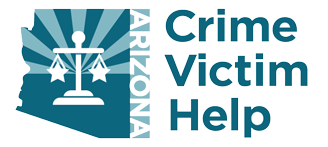T-Visa

A T-Visa allows non-citizens who are victims of a “severe form” of human trafficking to live and work in the United States temporarily.
Human traffickers use force, fraud, or coercion to make people do certain work, including commercial sex work (“prostitution”).
A “severe form” of human trafficking is either:
Sex Trafficking
When someone recruits, harbors, transports, provides, solicits, patronizes, or obtains a person for the purpose of a commercial sex act, where the commercial sex act is induced by force, fraud, or coercion, or the person being induced to perform such act is under 18 years of age.
Labor Trafficking
When someone recruits, harbors, transports, provides, or obtains a person for labor or services through the use of force, fraud, or coercion for the purpose of involuntary servitude, peonage, debt bondage, or slavery.
You can find more information about the T-Visa here:

A T-Visa allows you to:
Live in the United States for up to 4 years, with the possibility of an extension.
Apply to work in the United States.
Can those who are approved for a T-Visa apply for a green card?
Yes. After 3 years on a T-Visa, you can apply to become a lawful permanent resident and get a green card, if approved. If your application is not approved, you may be placed into removal, or deportation, proceedings.

Can my family get a T-Visa?
Yes. Members of your immediate family may quality for a T-Visa.
If you are age 21 or older, you can apply for a T-Visa for your spouse and your unmarried children who are under age 21.

If you are under age 21, you can apply for a T-Visa for your spouse, your unmarried children who are under age 21, your parents, and your unmarried brothers or sisters under age 18.
You may apply for a T-Visa for your family when you apply for your own T-Visa.
What do I have to show to qualify for a T-Visa?
You do NOT need to have lawful immigration status to apply for a T-Visa. You can be undocumented.
However, you must show that:
You are the victim of a “severe form” of human trafficking as described above
You are in the United States or at a port of entry as a result of the human trafficking
You will suffer extreme harm if you are forced to leave the United States
A law enforcement agency has “certified” (confirmed in writing) that you have cooperated with the investigation and/or prosecution of the case. You do not need this certification if you are under age 18 or unable to cooperate with law enforcement due to physical or mental trauma.
What is certification by law enforcement?
Before you can apply for a U-Visa, you must have a law enforcement agency “certify” (confirm in writing) that you have helped them investigate or prosecute the crime. You must ask the law enforcement agency to fill out Form I-914, Supplement B.

However, if you are under age 18 or unable to cooperate due to physical or mental trauma, certification by law enforcement is not required.

How can I apply for a T-Visa?
To apply for a U-Visa, you must file the following documents:
Form I-914
“Petition for T Nonimmigrant Status”;
Form I-914, Supplement A,
“Petition for Qualifying Family Member of T-1 Recipient”
(if you are also applying for a family member)
Form I-914, Supplement B
“Declaration of Law Enforcement Officer for Victim of Trafficking in Persons”
(unless you are under age 18 or unable to cooperate due to mental or physical trauma)
(You can also submit other evidence instead, such as trial transcripts, court documents, police reports, news articles, and affidavits)
A personal statement describing how you were a victim of human trafficking
Other forms as instructed depending on your specific situation.
“Petition for T Nonimmigrant Status”;
Form I-914, Supplement A,
“Petition for Qualifying Family Member of T-1 Recipient”
(if you are also applying for a family member)
Form I-914, Supplement B
“Declaration of Law Enforcement Officer for Victim of Trafficking in Persons”
(unless you are under age 18 or unable to cooperate due to mental or physical trauma)
(You can also submit other evidence instead, such as trial transcripts, court documents, police reports, news articles, and affidavits)
A personal statement describing how you were a victim of human trafficking
Other forms as instructed depending on your specific situation.
Learn more about these forms and find instructions here:

